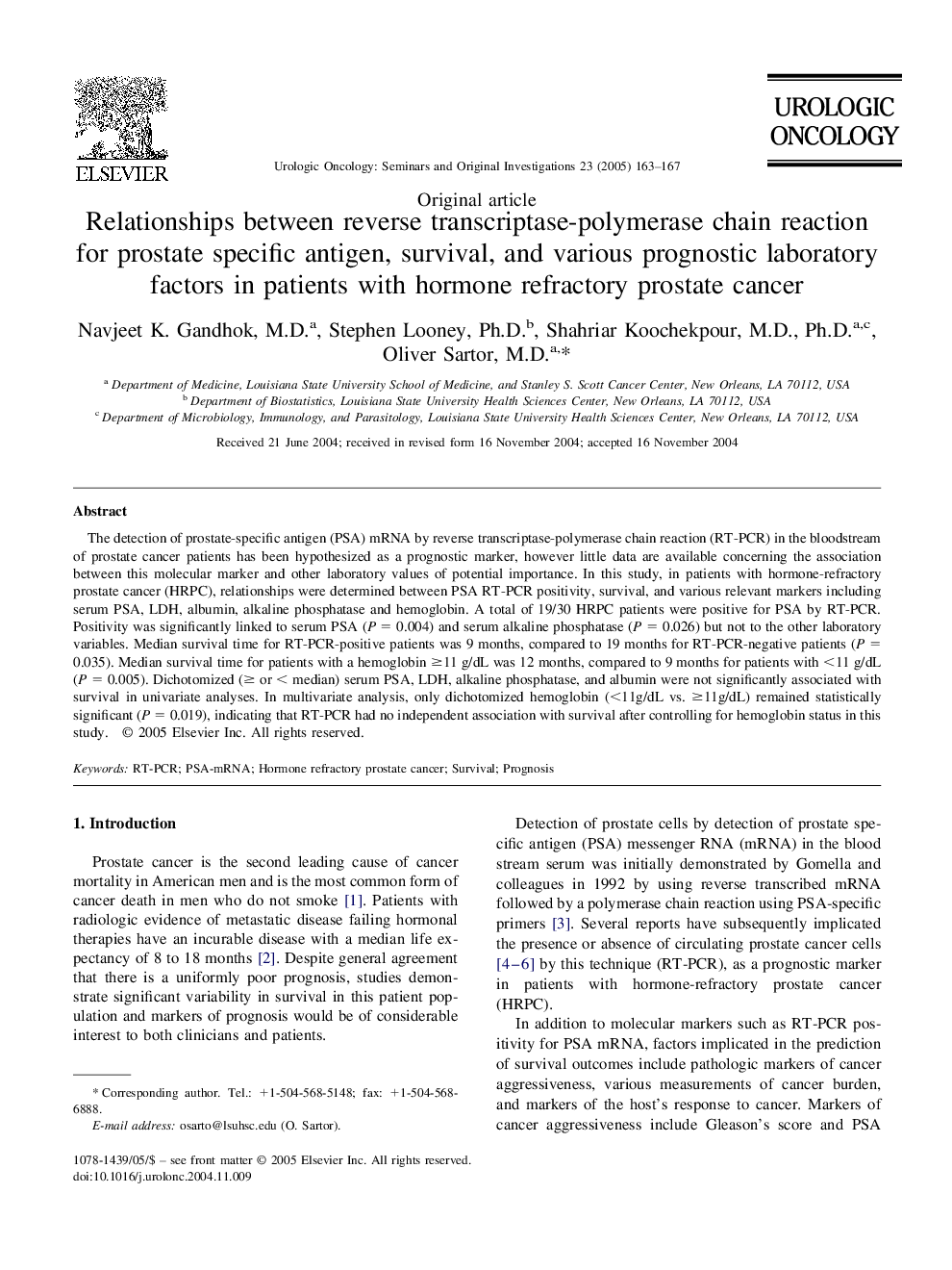| Article ID | Journal | Published Year | Pages | File Type |
|---|---|---|---|---|
| 9340926 | Urologic Oncology: Seminars and Original Investigations | 2005 | 5 Pages |
Abstract
The detection of prostate-specific antigen (PSA) mRNA by reverse transcriptase-polymerase chain reaction (RT-PCR) in the bloodstream of prostate cancer patients has been hypothesized as a prognostic marker, however little data are available concerning the association between this molecular marker and other laboratory values of potential importance. In this study, in patients with hormone-refractory prostate cancer (HRPC), relationships were determined between PSA RT-PCR positivity, survival, and various relevant markers including serum PSA, LDH, albumin, alkaline phosphatase and hemoglobin. A total of 19/30 HRPC patients were positive for PSA by RT-PCR. Positivity was significantly linked to serum PSA (P = 0.004) and serum alkaline phosphatase (P = 0.026) but not to the other laboratory variables. Median survival time for RT-PCR-positive patients was 9 months, compared to 19 months for RT-PCR-negative patients (P = 0.035). Median survival time for patients with a hemoglobin â¥11 g/dL was 12 months, compared to 9 months for patients with <11 g/dL (P = 0.005). Dichotomized (⥠or < median) serum PSA, LDH, alkaline phosphatase, and albumin were not significantly associated with survival in univariate analyses. In multivariate analysis, only dichotomized hemoglobin (<11g/dL vs. â¥11g/dL) remained statistically significant (P = 0.019), indicating that RT-PCR had no independent association with survival after controlling for hemoglobin status in this study.
Related Topics
Health Sciences
Medicine and Dentistry
Oncology
Authors
Navjeet K. M.D., Stephen Ph.D., Shahriar M.D., Ph.D., Oliver M.D.,
